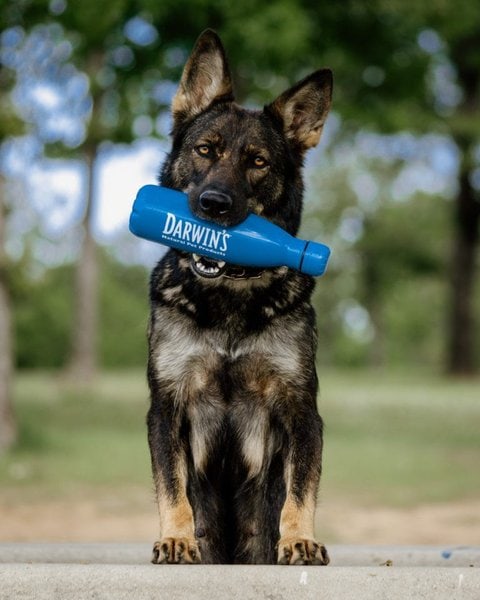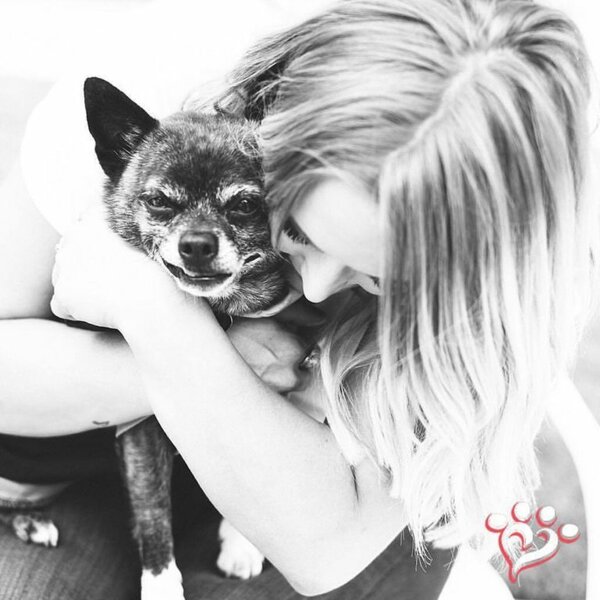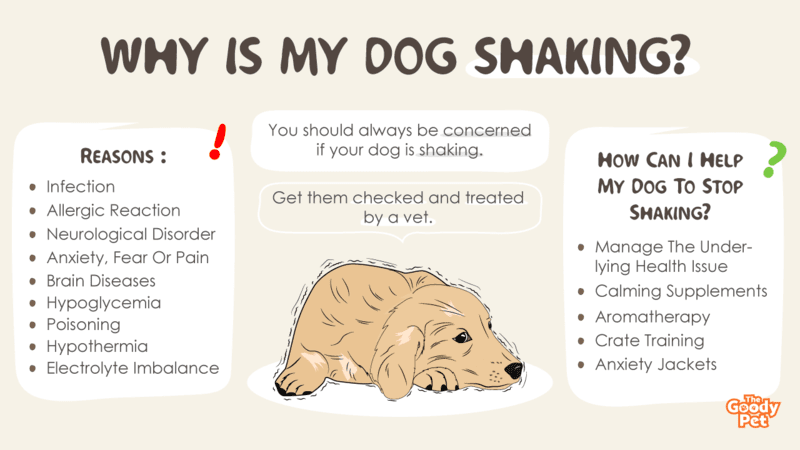It’s normal for dogs to shake or tremble from time to time. But if your dog is shaking all the time, it could be a sign of something more serious.
There are many possible reasons why your dog might be shaking. It could be a medical condition, such as an infection, an allergic reaction, or a neurological disorder. Sometimes, dogs will shake or tremble for other reasons, such as fear or anxiety.
If your dog is shaking for no apparent reason, or if the shaking seems excessive, it’s worth checking with your veterinarian to rule out any possible health concerns.
Why Is My Dog Shaking Its Body So Much?
If your dog is shaking excessively, it could be a symptom of physical health issues. Some of the most common of these causes are:
- Pain of any kind and origin
- Brain diseases
- Hypoglycemia
- Poisoning
- Hypothermia
- Electrolyte imbalance
In addition to the physical causes, your dog can be shaking as a result of psychological distress. This happens a lot in dogs that suffer from anxiety, phobias, or post-traumatic stress from a history of abuse.
We shall dive deeper into most of these causes and what sets them apart from other causes of shaking in dogs.

Why Is My Dog Scared And Shaking?
If your dog is shaking and also visibly shaking, it is most likely due to a psychological cause. The most common culprit here is anxiety. It could be anxiety triggered by environmental phobias or simply separation anxiety.
With these dogs, the shaking will be accompanied by signs of psychological distress. These include physical cues like tucking the tail away, flattening of perky ears, and a general cowering demeanor. The dog may also experience potty accidents due to the stress.
While stress is the most common cause of shaking in a scared dog, the problem could also be physical. Extreme levels of pain and physical discomfort have been known to cause psychological stress in dogs, especially in the long run.

Why Is My Dog Shaking While Lying Down?
Your dog may be shaking to the point of laying down if they are in extreme pain. With these doggies, the pain may be so much that the dog experiences discomfort with even the slightest of movements.
The general lack of interest in activity as well as low energy levels in these dogs is an ominous sign. You should therefore plan to take your obviously ailing dog to the vet as soon as you possibly can.

Why Is My Dog Shaking After Being Sick?
If your dog starts shaking after getting sick, it could either be as a result of the vomiting itself or whatever is also causing the dog to throw up.
Vomiting can be very uncomfortable for the dog. In addition to the abdominal discomfort, the dog will also lose water and electrolytes in the process. The combination of discomfort and electrolyte imbalance will often cause the dog to shake.
In other situations, the shaking may not be a result of the vomiting but something else that is causing both symptoms. The most common cause, in this case, is poisoning which will cause both vomiting and shaking independently.

Why Is My Dog Shaking While Sleeping?
Dogs can shake in their sleep either due to underlying health issues or as a part of their normal sleep physiology.
With the latter, dogs experience harmless twitching when asleep and dreaming. This may be as simple as twitching eyelids or as dramatic as full body tremors that make the dog look like they are running in its sleep.
These twitches are completely normal and harmless and will only last a few seconds or a few minutes.
However, the cause of the shaking could be something more serious.
Some of the most common causes of shaking particularly while the dog is asleep include issues like hypothermia that may not be enough to keep the dog up but are still uncomfortable.

Do Dogs Shake When They Are In Pain?
Dogs almost always shake when they are in pain and this is a good way to tell when things are not okay for your pooch. In some cases, the dog will only shake a part of its body which is common with limb injuries and diseases.
In other scenarios, the down will have tremors all over their bodies. This happens in cases of pain in internal organs or general, unlocalized pain and discomfort.
The shaking can occur for a number of reasons. More often than not, it is an involuntary response as the dog’s body tries to find a way to deal with the shock caused by the pain.
Shaking in a dog experiencing pain could also be a result of the psychological stress brought about by the immense discomfort.

Do Dogs Shake Off Stress?
Dogs do not strictly speaking “shake off” stress. However, they may shake a lot as a result of both physical and psychological stress.
Both physical and psychological causes of shaking are associated with a stress response by the dog’s body. This involves the production of stress hormones like cortisol and adrenaline.
These hormones are what result in the shaking as they trigger a fight or flight response with rapid muscle contractions. To some extent, these hormones help minimize some of the distress by giving the dog a burst of energy. However, the cause of stress will still be present.
In a nutshell, shaking occurs in almost all cases of stress in dogs but the tremors cannot fully get rid of the distress.

What Does A Dog Tremor Look Like?
Dog tremors can best be described as rhythmic shaking. The involuntary movements are repetitive and may involve muscles in a specific area of the dog’s body or they may be general covering the entire body.
Tremors vary in intensity from simple shaking to dramatic convulsions. What you observe depends entirely on the cause of the tremor.
The tremors may be difficult to distinguish in terms of actual cause without investigations and examination by a veterinarian. This is why it is important to get your dog checked out as soon as possible.

Is Shivering A Symptom Of Kidney Failure In Dogs?

Shivering can be a sign of kidney failure in dogs. It is often associated with chronic renal disease or the end stages of kidney failure.
The shaking in these cases maybe because of the pain and general discomfort that the dog is experiencing. It could also be due to fluid and electrolyte imbalance as the kidneys are not doing their job of maintaining balance.
Kidney failure can be life-threatening in dogs, especially in its end stages when symptoms like shivering start to manifest. If prompt action is not taken, your dog may go into shock and suffer fatal consequences.
Early detection is crucial when it comes to preventing this. Here are a few other symptoms of kidney failure in dogs that should raise alarms in your mind:
- Reduced urine output (it may also be higher than normal)
- Blood in urine or cloudy color of urine
- Low energy levels
- Chemical-like breath
- Paleness of gums, nose, and paw pad
- Weight loss
How Do Dogs Act If They Are Poisoned?
A dog that has been poisoned will act very erratically due to the shock and discomfort. You need to pick up on this as soon as possible and get them urgent medical attention to improve their chances of survival.
Here are a few specific signs that your dog has ingested poison:
Foaming
Foaming is an immediate response by the dog’s mucosal surfaces of the mouth and gut when they ingest something that is irritating. If you notice that your dog is shaking and also has foam coming from its mouth, it is almost a sure sign of poisoning.
Shaking
Shaking in a dog that has been poisoned can be due to a number of reasons. It could be due to pain from irritating poisons. It could be a shock response due to the trauma experienced in the digestive tract. It could also be convulsions due to toxic effects on the brain.
Confusion
Part of the erratic behavior you will notice in a poisoned dog is confusion. They will run from one end of the room to another for no apparent reason. They may stare back and forth apparently disoriented or unfamiliar with their environment.
Vomiting
Poisoned dogs may experience vomiting. This is the body’s way of trying to get rid of the offending agent. In some cases, the most you will see is the dog gagging.
What Toxins Cause Tremors In Dogs?
Tremors are often caused by toxins either due to brain toxicity or the body’s reaction to pain. Here are some of the most commonly implicated toxins that could cause your dog to shake a lot.
Human Medication
Human medication should never be given to a dog. It doesn’t matter whether it is painkillers, allergy medication, or something as strong as antibiotics.
The formulations and doses are made with humans in mind and maybe too toxic for the dog.
Medications like antibiotics are very commonly associated with tremors in dogs.
Poisonous Plants And Fungi
Some toxins are actually natural. Mushrooms are the most common cause in this case and should be completely avoided when it comes to feeding dogs. This also applies to mushrooms considered safe for humans.
Other plants including fruits and vegetables like onions, garlic, and grapes are also implicated as toxic causes of tremors in dogs. The effects here may either be immediate or weeks to months later.
Alcohol And Recreational Drugs
There is absolutely no reason for a dog to be consuming alcohol or drugs like amphetamines, cocaine, or cannabis. These cause tremors as a result of neurotoxicity where the brain’s functionality is compromised.
Pesticides
Pesticides are the most common causes of accidental poisoning in dogs. It could be rat poison left out to get rid of rodents or things like ant traps. The chemicals in these pesticides and insecticides could cause systemic toxicity causing tremor among other symptoms and signs.

What Can I Do If My Neighbor Poisoned My Dog?
There are only two things to do if your dog is intentionally poisoned by a neighbor, call the vet then call the cops.
Unfortunately, malicious poisoning of dogs happens all too often especially by neighbors irritated by something about your dog. If you suspect that your dog has fallen victim to this, the first thing you need to do is get your pooch some medical attention.
You can take your dog to the vet or call into a pet poison center for advice if the former is not an immediate option.
Once you have done all you can do for your dog, the next step is to take legal action against the malicious neighbor. The next step depends on the specific laws in your jurisdiction.
In some places, it can be considered a criminal offense of which you can press charges through the police. In other places, your option may be civil litigation. Whatever the case, just start with calling the cops to handle the incident.

What Are Signs Of Your Dog Dying?
There are many signs to look out for. It is important to be vigilant to identify them and prompt in your action. Early intervention may help you save your dog’s life or at the very least make their last days more comfortable.
Besides shaking and tremors, here are some of the most common signs that your dog is dying.
Loss Of Appetite
Your dog will start to eat less or may even completely refuse to eat or drink anything. This usually happens with dogs dying of slow and painful conditions. The discomfort makes the thought of eating dreadful for the dog.
Loss Of Bowel And Urinary Control
Dogs on their death beds also often display urinary and bowel incontinence. This may be due to nerve or brain damage by the illness or as a result of age. It could also be due to complete loss of interest by the dog in everything including sticking to routines.
Breathing Difficulties
You may also notice your dog struggling to breathe. They may pant more or breathe extremely fast or slow. This does not always mean that they have respiratory issues as life-threatening conditions in other systems may have the same manifestation.
Unusual Behavior And Mood
Another telltale sign of impending demise for your dog is a change in behavior and mood. Most doggies become apathetic and lose all interest in activities that previously brought them joy. They will want to do nothing more than laying around and napping.

Should I Be Worried If My Dog Is Shaking?
You should always be concerned if your dog is shaking.
Granted, not all causes of shaking in dogs are equal. Some causes are more serious and more deserving of your worry than others. However, the fact that you can never really tell without vet input means that all shaking should be treated the same until proven otherwise.
So if you notice your dog shaking, do not hesitate to get them help. Even if you think it is something simple and manageable like anxiety. The last thing you want to deal with is a serious condition getting picked up on when it is too late.

When Should You Take Your Dog To The Vet?
If you can, you should take your dog immediately you notice them shaking. Of course there are a few exceptions such as sleep twitching and shivering due to cold weather.
Other than these innocent causes of shaking, any other cause should be investigated promptly by a vet. This is because some of the causes of these tremors like poisoning and kidney failure can be life-threatening and require urgent action.

How Long Does Kidney Failure Take To Kill A Dog?
It can take anywhere from a few weeks to even 4 years for kidney failure to kill a dog. This is because the survival rate is determined by a number of factors. These include the extent of kidney injury and failure, the cause of the renal failure, and any interventions done.
Early stage kidney disease with prompt action increases the dog’s chances of surviving for much longer. The specifics of the causes of renal failure and their associated survival rates are a bit more complicated and are best understood by trained and experienced vets.

How Long Does It Take For A Dog To Be Poisoned?
Your dog could succumb to poisoning anywhere between a few minutes of exposure to days. The time it takes for toxins to accumulate to levels where they cause poisoning also varies from hours to days.
The type and potency of the poison is what matters the most in each case. Pesticides are the most potent of the bunch and usually cause immediate poisoning and very quick death if not corrected.
The amount of the toxic substance consumed also determines how fast the poisoning happens and in some cases, it determines how fast the dog succumbs if untreated.

What To Give A Dog If It Is Poisoned?
Ideally, you should not give a poisoned dog anything.
Remember that these dogs may be in a lot of pain as a result of digestive tract irritation. Giving them anything to drink or swallow may be causing them more discomfort than they need to be dealing with.
The fact that they are vomiting a lot also means that you are putting the dog at risk of aspiration by giving them anything.
The best thing to do if you suspect poisoning in your dog is to take them to the vet.

How Do You Detox A Dog?
Once your dog has been treated by a vet for poisoning or other toxicity, you can start with the detox process at home. This is meant to complement any treatment given and is in no way a replacement for veterinary intervention.
So what can you do to help detox your dog? Here are a few tips.
Water

Your dog probably lost a lot of water vomiting, experiencing diarrhea, panting, and foaming. Rehydrating does wonders for them as they heal and get back on their feet. Just leave a fresh bowl of water out for them to drink as they please.
Gentle Food
Part of detox is ensuring that your dog is getting a healthy diet and meeting their nutritional requirements. Gentle and easy to digest food is perfect for the job. This includes things like scrambled eggs, boiled chicken, pumpkin, rice, and fruits like bananas and papayas.
Antioxidant Supplements
You could also help promote the detox process through antioxidant supplements. These are available in different forms including water additives, soft chew treats, and even pills.
You could also get these antioxidants from fruits and vegetables that your dog can tolerate. Brussel sprouts, apples, broccoli, and spinach are a great place to start here.
Get Rid Of Offending Agents
This may include clearing insect traps, hiding medications that were accidentally ingested, or completely changing the dog’s diet. This will prevent a repeat of the poisoning incident that started the trouble in the first place.
Does Milk Help Dogs With Poisoning?
Contrary to popular belief, milk does not help with poisoning in a dog. If anything, milk may make matters worse for the dog.
If the dog is lactose intolerant, giving them milk will just worsen any gut irritation. This could worsen symptoms like diarrhea, bloating, and vomiting.
Even dogs that aren’t lactose intolerant, and those are the minority, giving milk to deal with poisoning is still not a good idea. The dog may be vomiting in which case giving them fluids like milk increases their chances of aspiration and injury to the lungs.

How Do You Stop A Dog From Shaking?
The best way to stop your dog from shaking is to get them checked and treated by a vet. This applies both for physical and psychological causes of the tremors.
If you are sure that the shaking is as a result of psychological stress, you may be able to calm the dog down yourself. This includes making them feel comfortable in different ways as we shall discuss shortly.

How Do You Calm A Dog Down When They Are Shaking?
The best way to calm a dog down when they are shaking is to make them feel comfortable. This may only work if the dog is shaking as a result of purely psychological stress. If it is physical, your efforts may not work as the physical stressor is persistent.
When calming your dog down, the first step would be to show them some affection. This may include talking to them in a calming tone, petting them, or cuddling.
This works with most dogs especially if you have a bond with them and they have learned to associate your presence with positivity and safety.
In other cases, your dog may just need some space. This is common with rescues that have traumatic pasts. They will need some time apart to calm down without being smothered with unfamiliar affection.
If all this doesn’t work, make sure to take your dog to the vet for further evaluation and to rule out physical causes of shaking.

How Can I Help My Dog Stop Shaking?
In addition to veterinary intervention, there is a lot you can do at home to help your dog stop shaking as we will see shortly. These strategies will complement professional interventions for physical causes of shaking as well as helping deal with psychological causes.
Here are some of these ways in which you can help your dog stop shaking:
Manage The Underlying Health Issue
This is the most important way in which you can help your dog stop shaking. Without addressing the underlying cause, the symptoms will never go away. Whether it is poisoning, kidney disease, infections, or pain, make sure to get your dog prompt care.
You also have to follow whatever directions your vet has instructed and offered. This can be following prescriptions as instructed or cutting out some food from your dog’s diet.
Calming Supplements
Calming supplements help to put your dog at ease and reduce shaking both due to stress and physical discomfort. Calming supplements come in different formulations and commonly used ingredients include hemp extracts, CBD oils, chamomile, and melatonin.
Aromatherapy With Calming Essential Oils
Essential oils like lavender have been shown to have powerful calming effects and are great for helping your dog stop shaking. Aromatherapy helps by saturating the air around your dog’s safe space whether it is the living room or their bedroom.
Crate Training
It may seem counterintuitive to stick a shaking dog in a crate but in some cases, it is the best thing for them. This applies mainly to psychological causes of shaking like post-traumatic stress in dogs with a difficult past.
The crate acts as a calming, safe space for them as they settle into their new, loving home.
Anxiety Jackets
Anxiety jackets feel like a safe, long-lasting hug. Sometimes, that is all a stressed-out pooch needs to calm down. Here, we recommend the Thundershirt Classic Dog Anxiety Jacket for its excellent quality and comfortable cut that helps the dog feel secure without being constricting.





